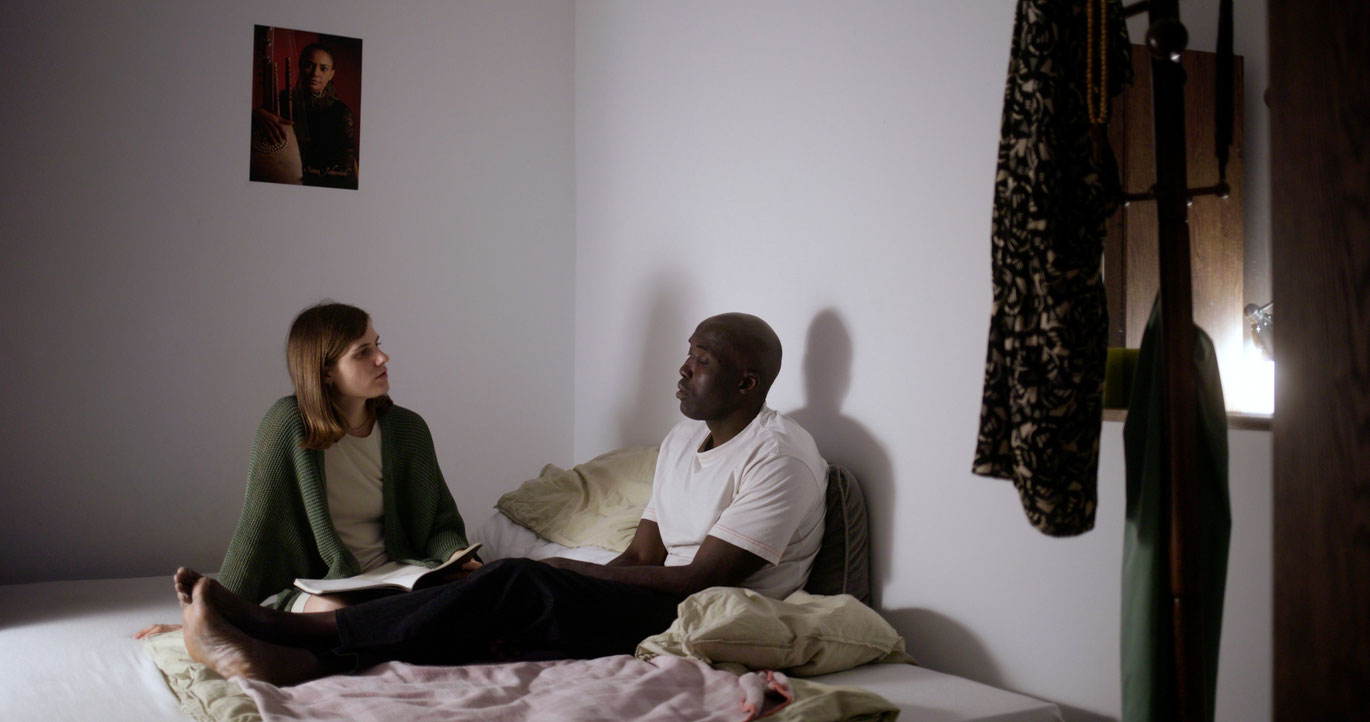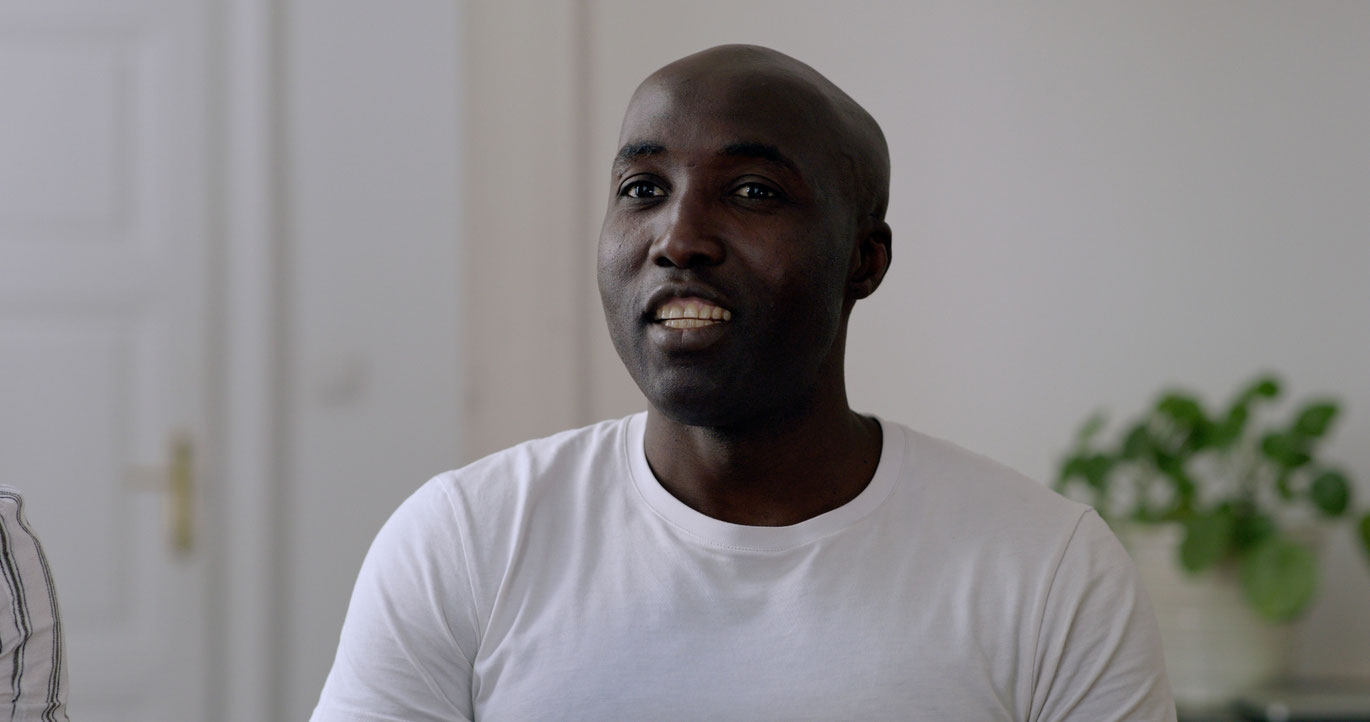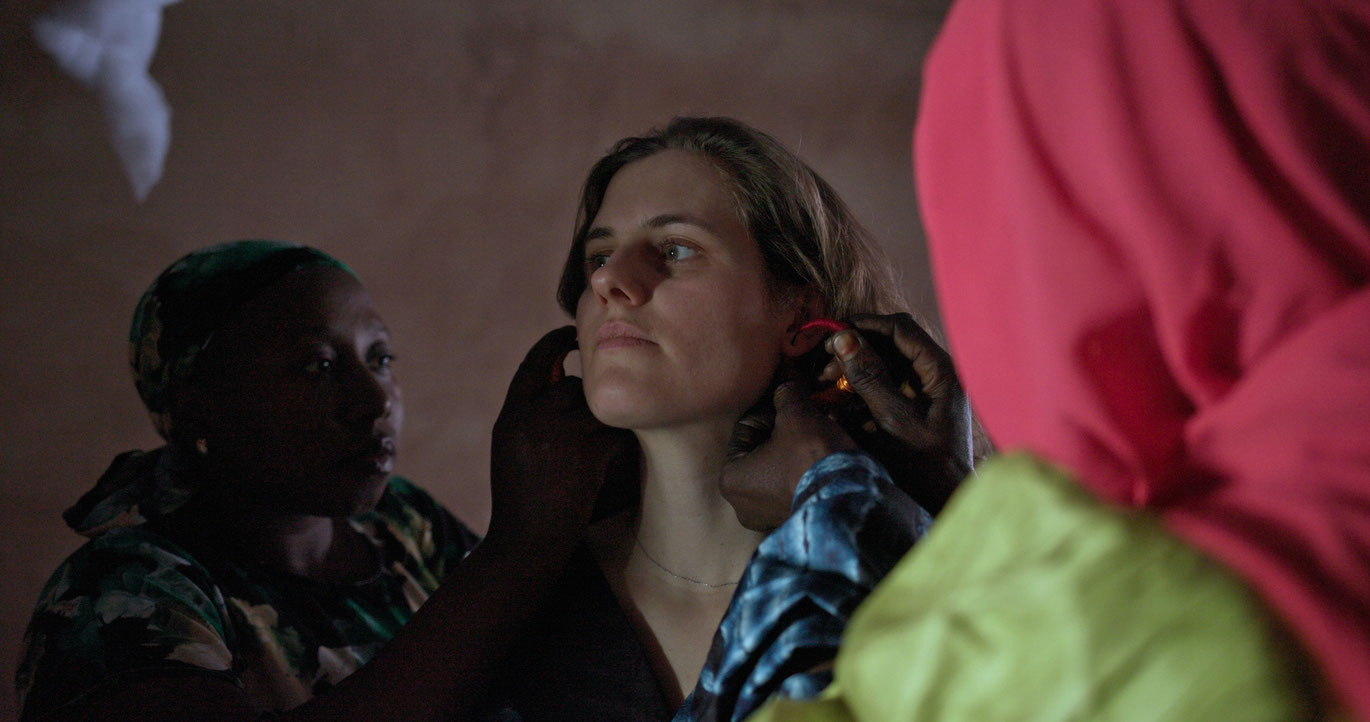Our Time Will Come
After years of uncertainty and involuntary exile, Siaka from Gambia and his wife Victoria have returned to their “homeland” Austria to build a stable existence and start a family. For over a year, Ivette Löcker accompanies the couple, whose longing for carefree love and the feeling of arrival are not being fulfilled without meeting a certain amount of resistance. In order to stay together, they have to continue fighting their way through the bureaucratic jungle. Victoria tries to find her way back to a “normal” life as a graphic designer, while Siaka’s precarious job situation still stands in the way of his participating in society and being accepted by it.
The two of them invest a large part of their energy in achieving their shared utopia, but cultural differences remain significant, social structures remain immobile, and their own history and traditions are just as hard to shake off. Siaka is in his mid-thirties and already exhausted by life, by the challenges that stand in his way and interfere with his relationship on a daily basis. And he is tired of keeping quiet about his pain.
Even though a new phase of his life is already awaiting him, Siaka is haunted by traumas from the past. In one pivotal scene, he tells Victoria of his urgent need to talk in front of the camera about his experiences of hardship, discrimination, and racism. He believes this is necessary to provide a tangible image, not only of their own personal reality, but also of the everyday reality of many other people. Victoria agrees, but she also wants the positive aspects of their relationship to have a future.
“Racism is a sickness. A sickness for the human society. A sickness that will never cure. Unless you use your power to stop it.” Löcker knows how to use her position as a documentarian effectively. Her multi-layered portrait of a relationship that shakes up hegemonic notions unfolds, but not without ambivalences, always provoking reflection on our own prejudices. Even though – or precisely because – the director remains invisible, dispenses with voiceover, and only once gets involved in the action from off-screen, she highlights a clearly humanistic attitude. This is already seen in the prologue, as well as in a scene where Siaka and a friend clear a garden of weeds with their bare hands in a very short time, and not without some kidding around about the Austrians’ work ethic. Löcker’s solidarity is with the marginalized perspectives, which she once again places at the center of her observation in order to give space to their voices instead of talking about them. (Michelle Koch)
(Translation: John Wojtowicz)
Regiestatement Ivette Löcker (dt) / 8.1.2025
Die Idee zu diesem Film hat mich gefunden, nicht umgekehrt. Als ich zum ersten Mal von Victorias und Siakas Geschichte hörte, war ich von ihrem Mut und der Kraft ihrer Verbundenheit beeindruckt. Mich hat die Unbedingtheit ihrer Liebe berührt. Liebe muss so sein, um bestehen zu können.
Wir haben das Paar ein Jahr lang mit der Kamera begleitet. Siaka, Mandinka aus Gambia mit Migrationsgeschichte, hatte endlich einen gesicherten Aufenthaltsstatus in Österreich. Es war das erste Jahr im Leben der beiden, in der sie nicht ständig gegen bürokratische und gesellschaftliche Widerstände darum kämpfen mussten, zusammenbleiben zu können. Und doch ragen die Schatten der Vergangenheit unbarmherzig in ihren Alltag. Der Druck der Gesellschaft und die Erwartungen der Familien an sie, in Österreich und in Gambia, gehen nicht spurlos an der Beziehung vorüber. Der Film will diese Lebensrealität sichtbar machen.
Victoria und Siaka sind sich der Unterschiede bewusst, die aus ihrer jeweiligen Herkunft resultieren. Für den Umgang mit rassistischen Vorurteilen und Diskriminierungen wappnen sie sich ständig neu. Beide haben diesen Film angestoßen, gerade weil sie ihn – ebenso wie ich als Regisseurin – als Beitrag für eine Sensibilisierung und für einen Blickwechsel im Umgang mit Migrant:innen sehen. Denn die filmische Auseinandersetzung mit ihrer Beziehung lässt uns einen neuen Blick werfen auf uns als Mitglieder der weißen Mehrheitsgesellschaft im globalen Norden und auf die Migrant:innen, mit denen wir leben.
Es war mir wichtig, die beiden Protagonist:innen in all ihren Facetten darzustellen und Momente der Verbundenheit und Zuneigung ebenso zu zeigen wie die Momente, in denen sie Konflikte austragen und Ambivalenzen oder unterschiedliche Sichtweisen aufscheinen. Der Film will sie sowohl als Paar in ihrem Miteinander zeigen als auch als eigenständige Individuen. Es geht darum, Unterschiede wahrzunehmen und gleichzeitig das zu betonen, was sie vereint und wonach sie gemeinsam suchen. Der Filmtitel „Unsere Zeit wird kommen“ birgt diese Sehnsucht nach einem besseren Leben. Wann werden Liebesbeziehungen wie die von Victoria und Siaka unhinterfragte Normalität sein?
Im Laufe des Films verändert sich der Garten im Innenhof des Hauses, in dem Victoria und Siaka wohnen. Siaka pflegt ihn gemeinsam mit der Nachbarin, mit der er sich in diesem Jahr anfreundet. Etwas wächst heran. Ich wünsche mir, dass dieses metaphorische Bild des gemeinsamen Wachsens und der neugierigen, respektvollen Annäherung nachwirkt.
„Unsere Zeit wird kommen“ erzählt eine ermutigende Geschichte. Schlussendlich ist es ein Film über zwei Liebende. (Ivette Löcker)
Berlinale Forum 2025 - Katalogeintrag
“Racism is a sickness. A sickness for the human society. A sickness that will never cure. Unless you use your power to stop it.” Siaka macht sich Luft. Jahre der Unsicherheit und des unfreiwilligen Exils haben den Gambier mürbe gemacht. Und nicht nur ihn: Auch Partnerin Victoria ist die prekäre Situation leid. Die Grafikdesignerin sehnt sich vor allem nach Normalität.
Ivette Löcker begleitet beide über ein Jahr, macht das Ringen um eine Beziehung sichtbar, die nicht nur bürokratischen Gewalten ausgesetzt ist, sondern auch kulturelle Differenzen austarieren muss. Weitestgehend unkommentiert, doch in ihrer Montage eindeutig Haltung beziehend, dokumentiert Löcker eine beständige Suche nach gegenseitigem Verständnis und Boden unter den Füßen.
Unsere Zeit wird kommen ist das Porträt einer Liebe zwischen den Kulturen, die trotz aller Schwierigkeiten in einem sich verstärkt dem Autoritarismus zuwendenden Österreich besteht. Und blüht: Am Ende des Films steht die Geburt des gemeinsamen Kindes. Sowie der Ausblick, den Traum eines Lebens auf zwei Kontinenten Wirklichkeit werden zu lassen. (Carolin Weidner)
Unsere Zeit wird kommen
2025
Austria
105 min
Documentary
German, English, Mandinka
English



